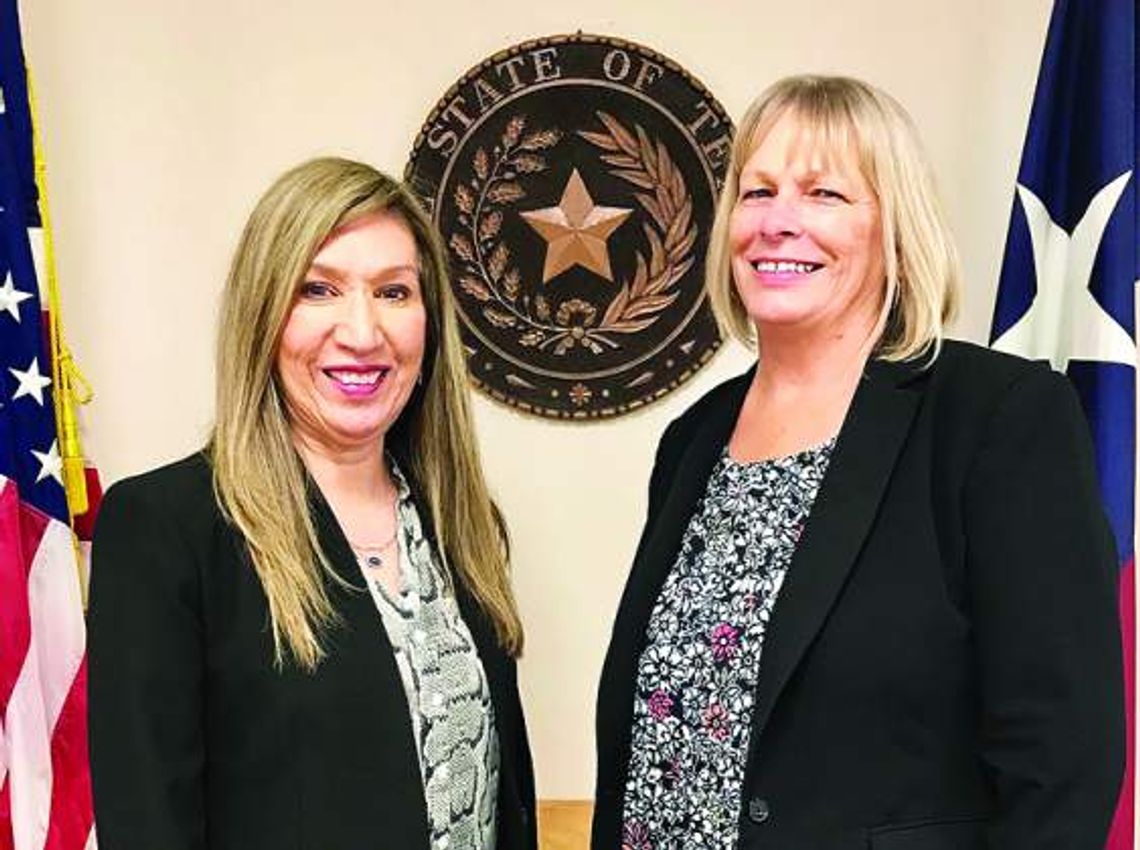Anyone who has sat through a criminal trial or hearing in the 451st District Court likely has seen a set of unsung heroes running in and out, offering a shoulder or a safe transport and so much more to a person often overlooked or forgotten by the public: The victim.
For every criminal charge that’s prosecuted in Kendall County, there’s a person impacted by that crime. Tucked away in the rows of small office spaces in an area on the third floor of the courthouse unfamiliar to most Kendall County residents lies the district attorney’s office, and in two of those spaces are the offices of those who never lose sight of those victims.
Victim advocates Glennda Wilke and Liz Jimenez are the first line of justice and support for those impacted by crimes. They work tirelessly against what seems like an uphill battle against a contradictory state reimbursement program and a lack of centralized government support to get victims connected with the resources they need to both endure the justice process but also to recover from impacts of someone else’s misdeeds.
State funding through the Crime Victims Compensation Program is available as a resource Wilke and Jimenez can connect with, but it is a system with flaws, they said.
“There was a case a few months ago where a guy had got stabbed in his leg, and we were able to get him an artificial leg,” Wilke said of a recent case. “They (the CVC) will pay for hospital bills. …
“You have to have your bills, which is hard because people won’t go to the doctor, they won’t go to the hospital because they have to pay money which they don’t have. You have to show them receipts, and then they’ll (the CVC) will reimburse you. Not everything qualifies.”
Kendall County Assistant District Attorney Nick Socias said the state funds are reimbursed, leaving victims – who often are already members of a marginalized community who have borne the ramifications of a crime – to front the bill with hopes of reimbursement in a month or so.
This is where a lack of centralized, local government structure becomes apparent. Because victims often cannot afford the upfront costs of medical bills, travel, missed work or other expenses associated with frequent meetings, trial dates and hearings tied to prosecution, the victim advocates become that centralized structure.
Wilke and Jimenez are the first point of contact for all victims, devotedly offering support and resources throughout the sometimes grueling trial process, and they devote much of their time becoming the keystone between victims and all of the nonprofit resources that may be able to meet victims’ needs. Unlike metroplexes where city or county resources are one, three-digit phone number away, Wilke and Jimenez said they work endlessly to maintain relationships with local nonprofits and community members to meet victim needs, ranging from gift cards for food or travel expenses to a local mechanic to get a victim’s vehicle up and running.
Through this tireless work, Wilke and Jimenez seem to have a solution for every problem, even when local resources can’t meet a need.
“Sometimes I will refer to (Hill Country) Family Services because they go through Salvation Army, and Salvation Army will sometimes relocate victims if they have the funds to do that,” Wilke said. “You know or fix their car or pay that month’s rent. Because they’re the agency that can afford to do that more than family services or more than (other local agencies).”
Socias said the victim advocates constantly are identifying the different needs and finding a resource for each concern, often relying on a handful of nonprofits for a single victim depending on what needs arise.
The department relies heavily on the close-knit community in Kendall County and its city and townships, the local churches that offer whatever they can and nonprofit agencies like the Kids Advocacy Place, Hill Country Family Services and Hill Country Daily Bread, among many others.
While hopefully few residents ever have to turn to Wilke or Jimenez for help, and crime stays away from residents’ front doors, Kendall County can rest a little easier knowing two unwavering women will be there to help hold them up should dark days come knocking.
451st District Court Statistics
Protective orders in 2021, 54
Victims contacted in 2021, 349
Victims contacted in 2022*, 141
*Through July







Comment
Comments